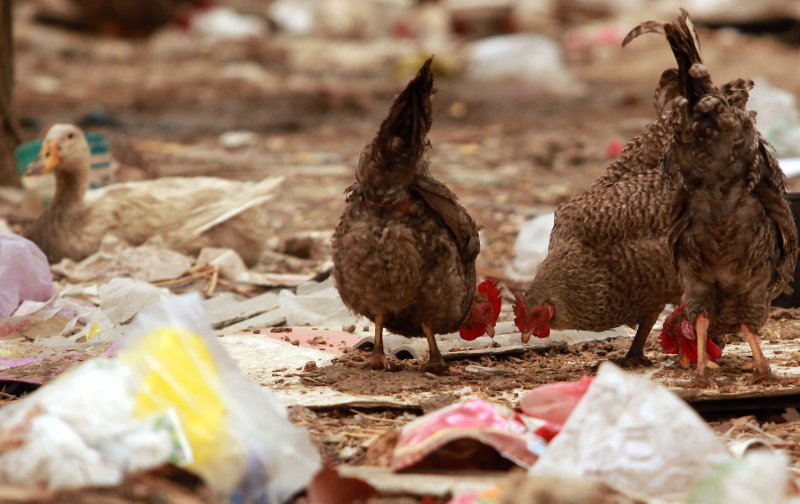Chickens feed on trash outside a low-income housing area on the outskirts of Beijing. UPI/Stephen shaver |
License Photo
BEIJING, April 19 (UPI) -- Experts from the World Health Organization say they are working with the China National Health and other agencies to help prevent further spread of avian flu.
There were 91 laboratory-confirmed human cases of influenza A(H7N9), with 17 fatalities in China as of Friday, WHO said.
Dr. Michael O'Leary, WHO representative in China, said at the invitation of the government of China, WHO, the China National Health and Family Planning Commission are leading a joint mission of experts to visit areas affected by H7N9 -- bird flu -- to study the situation and provide recommendations on prevention and control.
"I will be accompanying the team which will be visiting a number of sites in both Shanghai and Beijing," O'Leary said in a statement. "Our team includes international and Chinese experts in epidemiology, laboratories, clinical management, and other areas. The mission is just getting under way so there are not yet findings to report."
On its return to Beijing next week, the team will discuss its findings and make initial recommendations.
From the animal side, only a handful of the tens of thousands of chicken and birds tested were positive for H7N9, no positive cases in pigs, and virtually none of the animals were sick, in contrast to H5N1, the bird flu which has been around for the past 15 years.
"With this different situation in animals -- the presumed source of infection -- we are still uncertain about the source of illness in people," O'Leary said. "We know that, with perhaps rare exceptions, people are not getting sick from other people. Of the many hundreds of people who were in close contact with the H7N9 patients, the caregivers, neighbors, family members, and so on, there are only a very few cases where these contacts have become ill as well. But, there are little clusters of illness authorities are paying special attention."
Officials are concerned the disease can pass from person to person, but O'Leary said it still seemed this does not happen easily.















